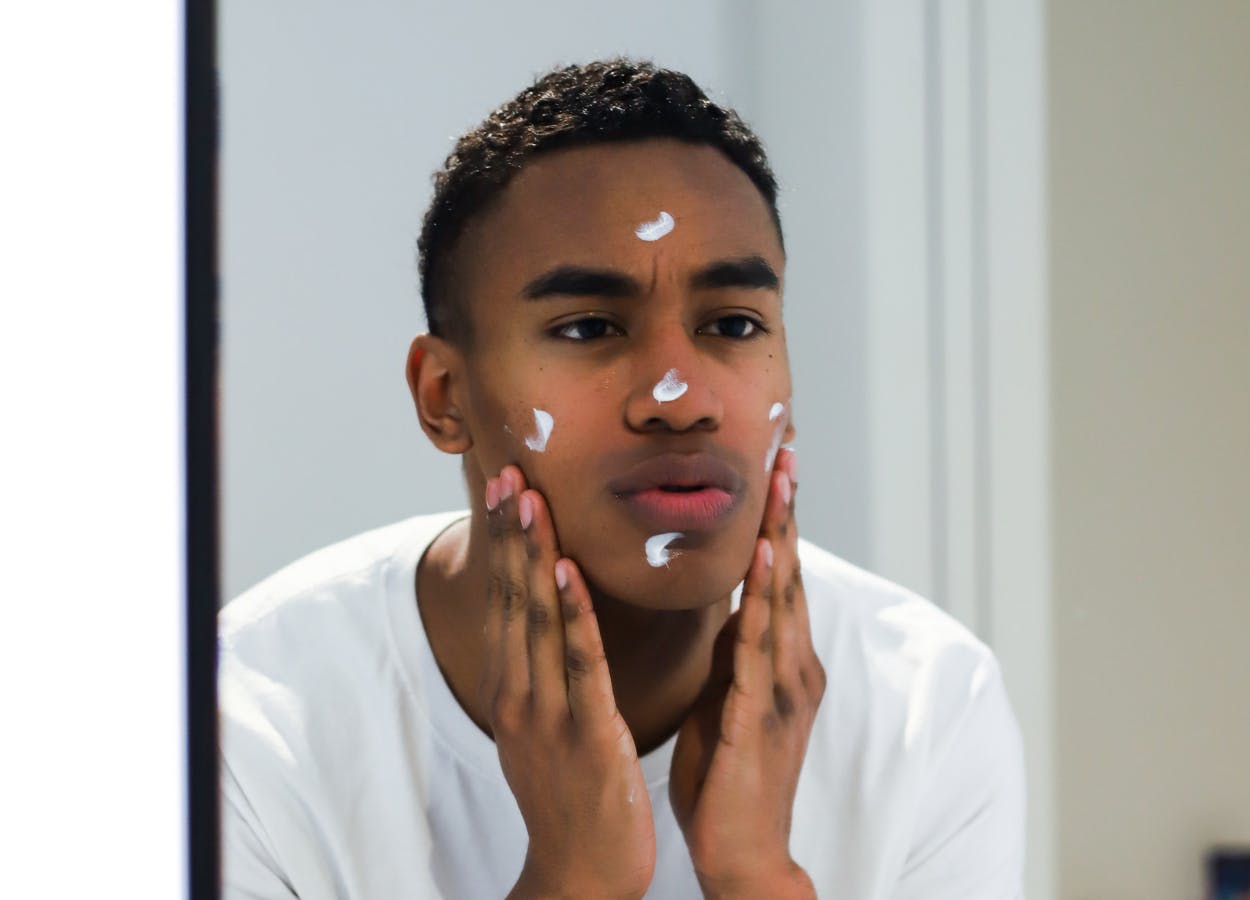5 surprising facts about eczema
Reviewed and fact-checked by Giulia Guerrini, Superintendent Pharmacist. Read our editorial policy to see how we create informative, accurate content.
Ever had that itch you just can’t scratch? If you suffer from dry and itchy skin caused by eczema, you’ll know all about it: scratching the itch can make it worse. Luckily, there are some soothing tips and emollients to help relieve dry skin and itchiness caused by eczema, like Dermol 500 Lotion. But, before we head into the world of skin condition solutions, here are a few surprising facts about treating eczema you might not know already.
1. There are different types of eczema
The term 'eczema' is a catch-all for quite a few different types of the skin condition. The most common one is called atopic dermatitis which causes the skin to become dry, itchy and cracked. It’s most common in children, but can also affect adults. These are some other types of eczema that could be causing your dry, itchy skin:
- Discoid eczema: This type is also called nummular dermatitis, but 'discoid' describes it better because it causes disc-shaped patches of eczema skin. This kind of eczema doesn’t usually affect the face or scalp.
- Contact dermatitis: This is when a particular substance causes dry skin and irritation. Here’s the good news (yes, there is some): if you identify and avoid whatever you’re reacting to, your eczema will usually clear up. You can use an emollient like Dermol Lotion to help relieve the symptoms in the meantime.
- Varicose eczema: This is a long-term skin condition that affects the lower legs and is common in people who have varicose veins. Like other eczemas, this can cause dry skin, itchiness, flaking, swelling or even scaly and crusty skin.
- Seborrhoeic dermatitis: This is a type of eczema that mainly affects the face, scalp and chest. This can affect adults and babies: you might have heard it being referred to as 'cradle cap'.
- Pompholyx eczema: Also known as dyshidrotic dermatitis, this isn’t an easy one to pronounce. This type of eczema usually affects the hands and feet and causes intensely itchy, watery blisters.
2. Eczema can be genetic
There are many eczema causes, including your genes. Research has shown that children with parents - either one or both - who have eczema are more likely to develop it themselves. Unfortunately, it’s not something you can avoid, but you can easily treat the eczema symptoms. You could try topical corticosteriods (creams and ointments used to reduce swelling and redness) or even emollients that you can shower with AND use as a daily moisturiser, like Dermol 500 Lotion. Emollients are an essential part of managing all dry skin conditions. They’re safe, effective and can soothe, moisturise and protect your skin.

3. Your environment can trigger eczema
There are quite a few things that can trigger eczema flare-ups, including your environment. Once you know about these, you can try to identify them as triggers and minimise your risk of a flare-up. Here are just a few common triggers that could be affecting your skin:
- Hot water
We all love a hot shower or bath to unwind, but dermatologists say that hot water can make eczema symptoms worse by drying out your skin.
- Cold, dry temperatures
Having eczema means that you already have dry skin, and cold, dry temperatures can make things worse by drying it out even more. A warm, humid climate is much better for your skin (time to book that holiday to Thailand).
- Soap, shampoo and bubble bath
They might make you smell amazing, but soaps, bubble bath and shampoo can strip your natural oils away – drying out your skin and causing your eczema symptoms. Try swapping your usual products out for a specialist body wash and moisturiser like Dermol 500 Lotion, which you can use as both.
- Fragrances and preservatives
These can irritate sensitive skin and even cause eczema outbreaks. They’re not just in soaps, you can find them in your makeup, moisturisers, fabric softener, washing liquid and cleaning products. Try to use ones that are hypoallergenic or free from dyes and fragrances.
- Wool and synthetic fabrics
This might be bad news for that cashmere jumper you love. Wool can be really scratchy, which can cause eczema symptoms. Synthetic fabrics can often be irritating to your skin, too
- Pollen, mould and dust
Dust mites, pet fur, mould and pollen can cause outbreaks if you’re particularly sensitive to them.
- Food allergies
We’re looking at you cow’s milk, eggs, peanuts, soya and wheat.
- Hormones
You might find your symptoms get worse in the days before your period, or during pregnancy.
- Stress
There’s still a lot that we need to understand about the link between stress and eczema – but we do know that while it doesn't cause the condition, it can make symptoms worse.
4. It’s not contagious
Eczema isn’t a contagious skin condition. There’s no way you can catch eczema from someone else, or pass it on to someone. Family members who live together might all have dry skin patches caused by eczema (as it could be genetic), which might give the impression that it is – but it really, really isn’t.

5. You can treat, but not cure eczema
Unfortunately, there’s no cure for eczema. But there are different ways you can treat it and soothe your symptoms. If you have severe eczema, or think you might have it, you should chat to your GP. They’ll discuss different treatment options including medication, steroids and other therapies.
You can also use an emollient like Dermol 500 Lotion. It’s an antimicrobial emollient and moisturiser that can be used as a soap substitute when you shower, and also as a moisturising lotion that you can use afterwards. It helps to treat and prevent dry and itchy skin conditions, especially eczema and dermatitis. It softens, hydrates and moisturises dry skin and prevents symptoms like itching, so you can feel more comfortable. Another great benefit is that you can use Dermol 500 for the whole family - even babies.
Looking for a skin-soothing, nourishing emollient to help with dry skin conditions like eczema? Buy Dermol 500 Lotion today for delivery to your door, tomorrow.


